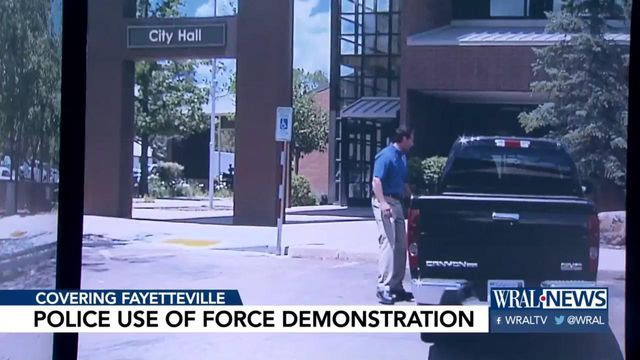Fayetteville police using virtual training to simulate use of force
Fayetteville police on Tuesday demonstrated the training their officers undergo to help them decide how to react when they are faced with having to use lethal force.
Posted — UpdatedThe agency deploys virtual training as part of the training.
A giant screen that is part of the training light up as part of a role play exercise.
In one of the scenarios, a man has been fired from his job but won't leave the company's parking lot.
In the training exercise, a supervisor calls the police and the trainee -- who is in the role of a responding police officer -- is then confronted by a man who pulls out a gun and points it at the head of the officer, who must then make a life or death response.
"All that has to be taken in by our officers," said police Chief Gina Hawkins. "It has to be taken in for them to make decisions and understand why they're making decisions to be safe first and safe for the community"
As part of the virtual training, the supervisor runs into the building as the suspect gets out of the truck with a weapon and starts walking towards the building.
How should the officer respond?
"In this scenario, you're going to miss a lot of stuff," said police Sgt. William Holland. "And you may see a lot of stuff. The information that you have at your disposal to make your decisions is the only information that affects the decisions."
During the virtual training exercise, the suspect continues walking towards the building with the gun pointed at his head.
The trainee is confronted with a real-time decision: does one shoot or not?
Related Topics
• Credits
Copyright 2024 by Capitol Broadcasting Company. All rights reserved. This material may not be published, broadcast, rewritten or redistributed.





